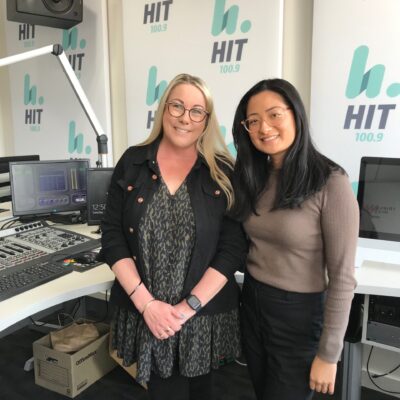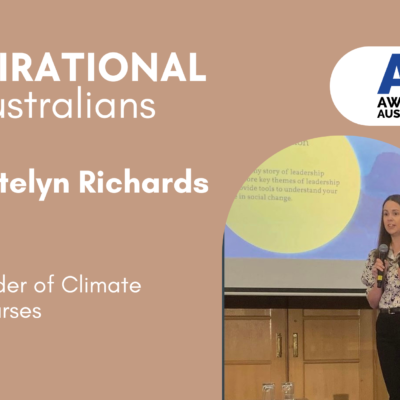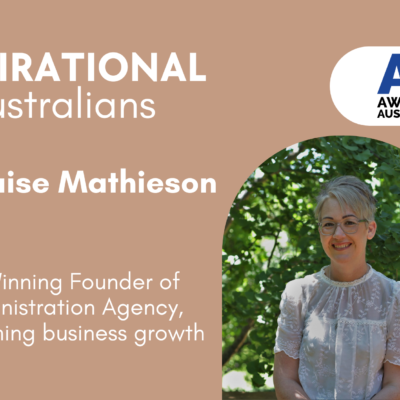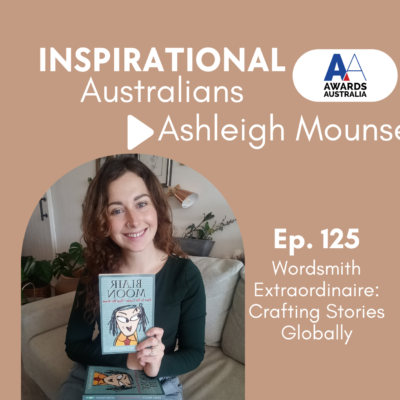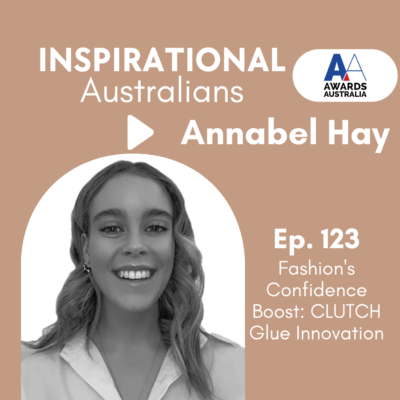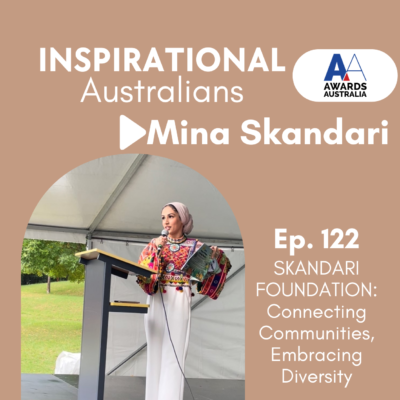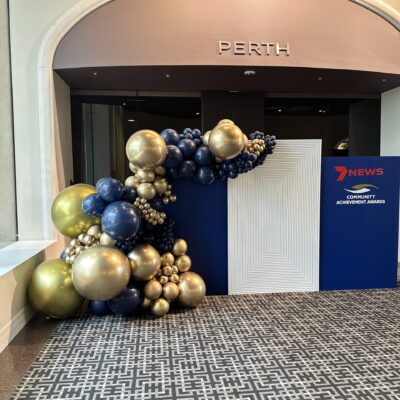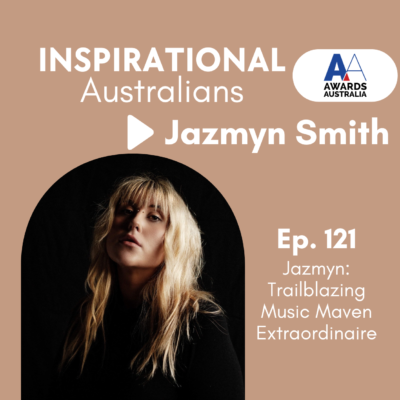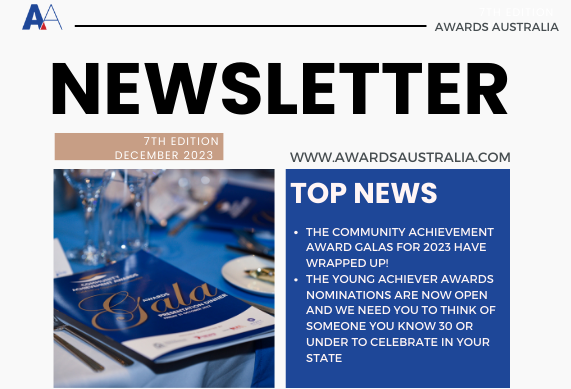In this week’s episode, Josh is talking to Luisa who is a double Finalist in the 2020 7NEWS Young Achiever Awards for South Australia.
Luisa Maria Panuccio, 24 is a Project Manager for major infrastructure projects in South Australia and uses her position to be a role model for young girls looking to pursue a career in STEM. In 2019, Luisa received the National Association of Women in Construction Graduate of the Year Award for her role in managing a complex program of works involving the construction of 20 civil projects across the Adelaide metropolitan area.
As an Ambassador for Engineers Without Borders Australia, Google and Children’s University Australia, Luisa speaks regularly at schools, careers expos and industry events about her role as a STEM professional to address the negative stereotypes associated with STEM careers.
In this episode:
- Luisa talks about her struggles with being both young and female as an Engineer
- Hear how a video for her younger cousin created a viral YouTube channel
- Hear what it meant to be nominated and then be judged as a Finalist in two categories
Links
Connect with Luisa on LinkedIn
Connect with Luisa on Instagram
Stem@Home on YouTube
Follow us on our Inspirational.Australians Instagram Page
Want to nominate someone? (It can take as little as 2 minutes to recognise someone making a difference)
Like some more information on Corporate Partnership?
Transcript
Annette:
Welcome to the inspirational Australians podcast, where we chat to people, making a difference in their communities and in the lives of others. And here is your host for today, Josh Griffin
Josh:
Welcome to the inspirational Australians podcast, stories of inspiring achievements and community contributions.
Every week we will celebrate a winner or a finalist from one of the awards program that we run at Awards Australia and we hope you will be inspired. Together with our corporate and not for profit partners, Awards Australia showcases ordinary people doing extraordinary things. If you enjoy hearing stories about inspirational Australians please subscribe, write and review the podcast. A special shout to the University of Adelaide who are holding their virtual open day on Sunday, August 16. I had a pleasure working with University of Adelaide for about 7 years now and their partnership with the 7NEWS Young Achievers Award in South Australia has been running for 15 years. If you like to find out more about their virtual open day, which todays guest Luisa is a part of, then head to www.adelaide.edu.au.
Welcome to the inspirational Australians podcast. And this week’s dose of inspiration. We’ll be talking to Louisa Panuccio hopefully I’ve got that pronunciation, correct. Louisa will definitely tell me in a minute. Luisa is 24 and a project manager for major infrastructure projects in South Australia, she uses her position to be a role model for young girls and kids looking to pursue a career in STEM. Last year, Louisa received the National Association of Women in Construction Graduate of the Year Award for her role in managing a complex program of works involving the construction of 20 civil projects across the Adelaide metropolitan area. As ambassador to Engineers Without Borders Australia, Google and Children’s University Australia Louisa speaks regularly at schools, careers, expos, and industry events about her role as a STEM professional to address the negative stereotypes associated with STEM careers. And I know Louisa is working with University of Adelaide with their virtual open day. So welcome Louisa, how are you going this morning?
Luisa:
Thanks Josh. Yeah, I’m good. And you actually pronounce my surname perfectly, so well done!
Josh:
Excellent, I don’t have any Italian heritage, wish I did have some, but I don’t
Well yet. Like I said, thanks so much for coming on. I’ve been following, I guess, your story a bit with the 7NEWS Young Achiever Awards for South Australia, I’m pretty heavily involved with that program. And so, you know, when you came through as a nominee and then the final list, and then when COVID situation came and we were locked in and you launched some STEM at home videos and my little three year old was really enjoying them. And you know, when we were searching for things to do to keep them busy, that was really cool. When my nephew who’s five, he is a little STEM superstar and he was so yeah, he’s loved them, they were following every episode. So I wanted to start with just asking you, you know, if you could just give us a little brief background. I know we covered some of that in the bio about why you’re passionate about STEM and I guess, you know, you can lead up to telling us about why you decided to do those demo home videos as well.
Luisa:
Yeah, definitely. I guess being a female in STEM and in particular in engineering, you very quickly come to realize that you are in the minority and that is something that I really would like to change. I think there’s been a lot of hurdles that I’ve had to overcome as being a female in STEM, in engineering and in construction. So getting minority, minority, minority as a female in those fields. And I don’t want other females to have to experience that in the future. So if I think about having children one day and my daughter, I would want her to come into a field that has a 50-50 gender split and say that be construction, she doesn’t have to, I guess, overcome some of the hurdles that I had to because there was a female on site and had certain comments made towards me.
So I think, a lot of people are working in the STEM field and trying to encourage STEM. And typically it seems to be happening at an older age, so in high school, but I actually think that’s too late for the change in mindset. So a lot of research that I’ve read and also from my own experiences, working in schools, I’ve noticed that kids seem to get in particularly in females of maths and science quite early. And then, you know, it’s too late when you get to high school talking to them about it because you’re not going to convince them to get back into it. Whereas like you were mentioning with your children and your daughter, who’s three, getting her excited and passionate about Science and Maths from such a young age means that she’s going to follow through with that. And she’s always going to have that in the back of her mind.
And then when she does get to high school, when it comes to subject selection, which she’s probably going to be more likely to pick the Maths and Science subjects, which is then going to lead to a career in STEM and then that works to fix that gender gap. So we get more of a 50-50 split in those fields. So I guess it’s a long term sort of plan in the sense that if I start with kids who are quite young, get them really passionate about Math and Science, my hope is that they’re going to then follow that through. And in the end, this industry is going to become more gender neutral. And then girls, aren’t going to have to experience some of the things that I’ve had to experience and the hurdles that I’ve had to overcome being one of very few females in the industry that I’m in.
Josh:
Yeah. And that’s, that is quite challenging in a way to think about, you might not see those, um, you know, the, the benefits or the, I guess the fruits of your labor until down the track, but, um, yeah, definitely commend you on that could have such a cool thing to do. Um, and I think it’s something that people just didn’t think about previously. I don’t want to make excuses for people, but I’m so happy that people are thinking about it now and that they’re putting their time.
Luisa:
Yeah. I think it is something that potentially people have thought about, but I’m just not sure if they’ve gone about it the right way. So a few weeks ago I spoke on a panel for engineers Australia, and there was two other panelists on it who were a fair bit older than me, but it was quite interesting that they noted that the gender gap in, I guess the Maths and Science subjects at university was the same for them as it is for me as it was for me only a few years ago. So obviously, yeah. And that’s, that really shocked me that they were saying, so I made a comment about in my first year Maths subjects, there was about 300 males and 30 females. So that was engineering Maths. So only people who studied engineering at the University of Adelaide do these subjects. And that was about the breakdown.
And the other two panelists one was male and one was female both admitted that while they were studying university, while I was studying engineering at university in different States, they had a very similar gender gap in their subjects. And it just made me think, well, hang on, we’ve probably got like 10 to 15 years between us then that we’ve been at university and it’s the same problem now. So something needs to change. We’re not doing it the right way. We’re not encouraging girls to pursue a career in STEM potentially the right way. So I sort of thought we need to twist it off a little bit to make a difference. Yeah.
Josh:
Yeah. Can you tell me a little bit about those videos? Was it kind of just, I’m just going to do one and see where it goes, or did you have kind of a bit of a strategy in mind with the STEM at home? It’s full series now.
Luisa:
Yeah. Um, I had absolutely no strategy whatsoever. When I started STEM at home, it actually was prompted by one of my cousins who was messaging me saying that her daughter and son were quite bored. And if I had any, I guess, experiments or anything, like we’d sort of recommend that they could do. And I remembered that I knew how to make a lava lamp, which sounds a bit strange. Cause how do you just know how to make a lava lamp? But, um, when I, going back to 2015, I interviewed for a job with Google and Engineers Without Borders Australia. And there’s a part of that interview. I had to teach them how to make something. So I taught them how to make a lot of lamp because I had briefly learned about it in chemistry when I was in high school. So that’s sort of where it came from.
So I thought, all right, loose lava lamps, first episode, easy. The intention was that it was for my cousins, I was always going to post it on YouTube and Instagram. So it was easy for them to access as opposed to trying to send a massive video file to them. But I didn’t think it would blow up as much as I guess it has, which led to, I guess, the subsequent four other episodes with other activities. And now we’ve also got the spinoff series, which is STEM at home. What do you do?, which gives kids a little bit of an insight into what STEM professionals actually do. Okay. So that first episode launched a few weeks ago and that was just, um, for International Women in Engineering Day. So it was 22 really strong, powerful females working and studying in engineering and just showcasing a little bit about them. And then on Monday, I’ve got the next episode launching, which is called S it’s the science, and I’m going to be meeting some amazing people who work in the field of science.
Josh:
Yeah. Awesome. And what was that like to arrange that, but that’s a different challenge going from just, you know, taking a video of your own thing to then coordinating 22 other people who have their own jobs and things there.
Luisa:
I think, the thing that held between the most is I’m very OCD. So when I got to the point where I was like, okay, I want to do a spinoff and I want to involve other people. I thought make a plan. So at this point I did make a plan, write a really detailed email explaining, I guess, why I want to make these special additions, what I think the benefit will be for kids and what the steps are. So there was a series of questions that I asked all the different people I emailed to answer and then send back me a videoa. And I was blown away by the amount of responses I got. So for the female engineering edition, there was 22 different females who took part, um, for the science one coming up. I’ve got about 16, um, females and males taking part and the other episodes. So there’s one on technology and then engineering one, which is about a 50-50 gender split. So half male, half female, I’ve got about 50 people for that video, doing a lot of editing. And then I’ve got a mass one again, which heaps of people have volunteered to take part. So it’s been amazing how passionate everyone is about getting involved in the cause.
Josh:
No, that’s awesome. It’s so cool. Um, well look, I’ve been ignoring my notes here and I want to just refer to them quickly. And, um, I’ve started at the start that you are a finalist in the 7NEWS Young Achiever awards. Um, and you’re actually in two categories. So University of Adelaide’s STEM award, very fitting obviously, and also the University Senior College Create Change Award. So you know, that one’s very fitting in terms of, you know, your work about, um, as you mentioned, trying to equalize that gender balance in STEM and specifically engineering your field. So what was it like, I guess to, you know, if you can cast your mind back, cause this is quite some time ago now, um, March when the judging announcement was made. Um, yeah. Were you surprised, were you, you know, um, I guess what were you feeling when you heard that you were a finalist?
Luisa:
I was blown away. I remember just being announced as a semifinalist. I didn’t think I would make it to that stage. And I was so honored and I thought, you know what, I’m a semifinalist in two categories. I’m going to take that. And I put that on my resume. I’m so excited. And then getting that subsequent announcement of being a finalist in two categories, I almost fell off my chair at work and I started crying a little bit. Cause I think when you’re in the thick of, I guess, being involved in as many things as I like to be involved in, you start to, I don’t know, you don’t really think that you are that impressive. You just think, well, this is what I’ve always done. This is what I’m going to continue to do. And I think when you get recognized and I guess announced as a finalist in awards, as amazing as the Young Achiever Awards, you start to think, hang on a second.
Maybe I am actually making a difference here and maybe all my hard work and all the nights I’ve stayed up really late writing emails and doing all this sort of thing and all the editing, it has actually been for something and it is making a difference and people are starting to notice it. And I think that feeling is just, it’s a bit of a, like you sort of step out of your shoes for a second new, like way out, like I’m making it, I’m making changes. So I think, yeah, that being a finalist in the change category in particular was really amazing. Cause I I’ve had a bit of involvement in STEM and I have won a few awards in STEM. So in sort of that area, but the label of being a change maker or creating change is something that I’m really proud of. And yeah, I’m honored to be a finalist.
Josh:
Yeah. Well, I’m so glad to hear that you were, um, you had those thoughts I’m actually, yeah, I am making an impact because you know, so often, uh, as Australians, we all know about tall puppy syndrome and you know, we’re so quick to be self-deprecating in say, uh, now, you know, I’m just doing my normal job or whatever, but it’s okay to, for us to say, yeah, we are, you know, I’m proud of my achievements. Um, and that’s one thing we really try to emphasize with these awards that it’s okay to be really proud of your achievements and to, you know, to celebrate them. I think.
Luisa:
Yeah, I definitely am very much looking sided to looking forward to celebrating when we get to the awards night, which I think is in October now. So fingers crossed that can go ahead.
Josh:
Alright. So we’re just getting ready to make some more announcements around that. So anyone listening that is involved with the Young Achiever Awards in South Australia, definitely keep a tune to that Facebook page and there’ll be some announcements coming very soon. So, you know, we’ve talked about, you’ve been selected as a finalist. Um, do you think this is hard for you maybe to speculate on, but what do you think maybe the judges thought when, when they’re looking at your kind of application that made them think yes this is a finalist?
Luisa:
Well, I think I trusted make at a little bit lighthearted and I put a few jokes in there as well. Um, I think I’ve thought about the fact that the judges would be reading heaps and heaps of nominations and pages of pages of writing. And I thought let’s change it up a little bit. Let’s like write it as if I’m speaking directly to them and giving them an insight into my life and what I’m doing and why I’m doing it. Um, I think I might’ve joked about my, some of the experiences that I’ve had on site and that they haven’t always been positive, but I then said, well, you know what? My glass is always half full of water, of course, because sites are alcohol free zones. So I just made that little jokes throughout the nomination that I thought was that I thought were funny.
I think I’m funny. Um, and I think it was things like that. I made it very personal. It wasn’t more like it wasn’t really a scripted nomination. I think it was more, this is what I’m doing and this is genuinely why I’m doing it. And yeah, I think they could sort of see through that application. They could actually get to see who I am. And I also had a lot of links to videos and I had some snippets of my social media profile and how I’m using that to promote STEM. So I think it was a little bit different to maybe what they’ve seen before and that would have been a standout.
Josh:
Yeah, for sure. And this is turning into a great little how to, and a tips and tricks and how to do your nomination, not just for the Young Achiever Awards or the Community Achievement Awards that we run at Awards Australia, but any awards program. I think that’s great advice too. You don’t have to necessarily write really formally and, um, you know, use jargon. It’s about showing your authentic self, which you did and your experiences because you’re right, the judges do read a lot of applications and they have to consider them all. Um, and if that’s something is speaking, if they’re reading it, being written to them, you’re right. That is a really effective way. Um, and as you said, the links and things like that, if you can attach, um, extra stuff that provides cause a lot of awards programs, it has included, you have to answer a bunch of set questions. And so then, you know, from your perspective, Luisa, it’s hard for you to show personality or, you know, maybe your experiences by entering those set questions, they might not be specifically suited to what you’re applying for. So it is a really good idea to show those extra links and those things that kind of get more of your message across.
Luisa:
Yeah, no, I couldn’t agree more.
Josh:
Speaking of nominating, did you find it an easy process? And the reason I’m asking is, uh, I also want to ask a double edged question. Would you encourage other people to nominate for awards like this or any award really?
Luisa:
Yeah. I didn’t find it hard at all. To be honest, I had been encouraged to apply a few years ago and I decided not to, because one, I thought I wasn’t that impressive. And secondly, I was a bit worried about what the nomination process would entail and they would take a lot of time. Um, and then I don’t think it actually took that long thinking back to, I think it was in early January now that I think of it, that I actually did the process and it was, it was actually quite easy to do because all I had to do, yes, the questions were set, but all I had to do was explain what I was actually doing in my day to day life and why, I guess I thought that was making a difference and it sort of wrote itself in a sense, cause it’s not hard to talk about something that you’re passionate about.
And like you said, I had the opportunity to show my personality through it as well. And I had a bit of fun with it because I thought, okay, how can I show them what I’m actually doing? And I’ve got these set questions and I thought, Oh, the attachments, I can make like hyperlinks in my PDF attachments and I can meet them to all these different things, which yes, you can’t show in the written response, but you get the opportunity to provide, I think it’s about 10 attachments in your application and that’s heaps to be able to show who you really are and your genuine self. So my advice would be definitely nominate, it’s definitely one of the best things I’ve ever done. And also the exposure you get from being a finalist, um, just on social media and on LinkedIn, it’s amazing for your career and for your resume. And I remember saying that when I got selected as a semi-finalist, I thought I’m putting this on my resume. That was the first thing I did. So it’s definitely an achievement in itself to do the nomination and just get to the first stage. So I highly recommend it.
Josh:
Yeah. Awesome. Well, thank you, So I’m just changing the subject a little bit. I touched on this earlier in the intro, your headed to the University of Adelaide today. Can you tell us what you’re, what you’re doing in the virtual open day?
Luisa:
Yeah. So I guess COVID is changing things for everyone at the moment and we’re having to change how we do everything and, but we’re all in this together. So everyone is being impacted by it, with the universities obviously they typically do an open day, which is such a great day. Cause you get to go onto the campus and you get to see what it would be like to be a university student. Now, unfortunately, due to COVID in some of the restrictions in place, a lot of the universities around Australia can’t do a physical open day this year. So they’re moving towards a virtual open day and, you know, technology it’s everything to us. We wouldn’t be able to have this conversation right now without technology. So why not utilize it to show the university. And as a part of that, the faculty of sciences approached me and said they were quite interested in making some videos with some student testimonials, because that is one of the best things about going to open days is you get to talk to the current students and learn about their experiences and what they’ve enjoyed about being on university and some of their highlights.
So we sort of ended up with a concept of a series of videos where I would be speaking to different students from different areas and the faculty of sciences and just asking a series of informal questions and just getting to know them, getting to know a little bit about their degrees. So last week we filmed three of those episodes and it was actually really nice to be back on campus, socially distancing of course, to film the episodes. And then this afternoon we’ll be filming a further three and I’ve actually learned heaps about science. And I know a bit about science cause obviously I work in sort of that field and I’m passionate about STEM, but my background is engineering so it’s not necessarily purely science. And so I’ve learnt heaps about like genetics, ecology, biomedical science. I feel like I could go do another degree now they’ve inspired me to go back to uni to do a science degree, but yeah, it’s been really great and the students have been really passionate about it and I can’t wait for the finished product and for kids around South Australia and even Australia, just to watch these videos and get to know a little bit about all these different degrees.
Josh:
Yeah. And that’s the university obviously that, that you went to. So, you know, it’s great to still be involved, um, and have that link. You’ve got multiple boards as well. So I guess I’m, you know, I’m not trying to give a plug to the university of Adelaide, they are our sponsor in the awards. What made it special for you, yeah, If you can cast your mind back to being a student.
Luisa:
Oh, I loved going to university. And I remember before I started, a lot of people said to me are at university, you’re going to become a number amongst many. I never felt like that at the University of Adelaide. And again, I’m not trying to plug the University of Adelaide, but it is the uni that I went to. And from the get go, I loved my experience. I had so many opportunities while at the university to travel and study abroad. So I went to India for a little bit and that was actually funded through the university through a scholarship. So that was amazing. Um, being able to undertake placements and also just the campus is beautiful. So the University of Adelaide has such a beautiful campus. Um, it’s also a really cool uni. So every year in Adelaide we have a festival called the Fringe Festival and the University of Adelaide hosts the Royal Croquet Club, which is like this massive party as a part of the fringe.
And like my uni, the uni I went to hosts this party every year. And that’s just such a cool thing. Do you know any uni which then on the weekends turns into a club it’s like, it’s insane. I don’t know. I can’t speak highly enough about the University of Adelaide. It changed my life. It is the reason why I’m where I am today. And the fact that I get to now go back to the campus and be involved with some of their projects. Still just, I’m so happy to do it because they gave me so many opportunities. So I have no issue giving back to them to help them and teach the students.
Josh:
Because as I said to you, before we started this interview, I’m an Adelaide boy living in Melbourne have been the last 20 years now. It’s kind of crazy to think about, but I’m, you know, I’m back in Adelaide all the time, seeing family and with the awards and things like that. Yeah. And fringe, and you’re at the University of Adelaide, the, the campus they’re so nice. We often host meetings there and since its sort of central location and easy to get. Um, and yeah, it is you’re right. It is a lovely spot. So, you know, I always say to people, um, you know, hopefully for us Melbourne based people at the moment, we can travel again into Adelaide soon. Um, I always recommend people to go to Adelaide for a weekend or whatever, it’s such beautiful spot,
Luisa:
Nicest city in the world, in my opinion,
Josh:
You know, it is, it is very good. Um, can’t wait to get back there to finish off the Young Achiever Awards. Um, you know, speaking with speaking of your early career at, in university and things like that. Um, are you working at the moment with your, you know, your civil engineering, um, career as well?
Luisa:
Yeah. So I currently work for the department of planning, transport and infrastructure as a project manager. And I’m currently managing the upgrade of several intersections in the Adelaide metropolitan area. So in my bio, you’ve spoken a little bit about the fact that I won an award based on my work on 20 intersections. So that was what I was doing the past two years. Um, and then this year I’m sort of up to a little bit and I’ve got three pretty big ones that I’m managing and yeah, they’ve been, it’s been amazing. Uh, it’s pretty cool to be in a project managing position, quite young. So I am only 24. And I think that has been a hurdle in itself sometimes being asked, how old are you in meetings?
Josh:
No, you had mentioned about the gender balance and now you preserved as well from a young age. Is that tough sometimes?
Luisa:
It is because people don’t take you seriously. I think, um, especially in construction, which is already, it’s a male dominated field and there are, and I don’t want to say anything there’s anything wrong with, I guess the males that are in the field because 99% are great and 99% are so knowledgeable and have taught me so much. So I’ve learned the most that I’ve learned on most jobs from the foreman on site, they’ve taught me everything and I’ve learned any tips and tricks from them. And I have so much respect from them. Uh, there, you always get, you know, that 1% that one of make, a little sly comment or something along those lines of, well, how old are you? What are you? You know, you’re a girl and it’s just, I guess, having to constantly sort of defend yourself. That’s something that sometimes gets a little bit tiring, but at the same time, I’m happy to do a bit, have a pretty strong personality and I will put them back in their place because I do feel like I have the right to be where I am.
I’ve worked really hard to get to this position at 24. I’m proud of myself for how hard I’ve worked to get here. And at the same time on the side, I know that I’m doing all this STEM stuff and that I’m potentially inspiring the future of this industry and a more gender neutral industry and that these girls aren’t going to have to experience this. And that sort of makes me want to work harder on both sides of the spectrum just to, you know, defend myself, but then also defend the future for these girls and make sure that they know they have a right to be in this industry just as much as I do.
Josh:
So this is the inspirational Australians podcast, of course. And to me, what you just said there is really like, so honestly inspirational that, you know, you’re out doing your day to day work, just like anyone in their job and that you’re carrying that, um, that, that those thoughts and those plans, not just for yourself, but for future generations. I think that at the crux is a, to me why you’re a finalist in the Create ChangeAward, because that’s really inspiring, you know, some people go to work and they’re just trying to get their hours down in your, by this huge kind of ambition. And I think it’s, yeah, it’s really should be applauded always.
Luisa:
Well, thank you so much now. I think, well, how can you, how can you experience something that you, I guess don’t like, and then not want to change it. And I think if you experienced something bad, will sounding even worse than that would be knowing that someone else is going to experience that as well, because you didn’t sign anything or you didn’t do anything to change it. So I think that’s my driving force behind it is changing. It is making sure that no one else has to experience some of the things that I’ve experienced. Some things that other girls in the industry have to experience because we are a minority because we’re a minority, we’re a novelty. So it’s just getting rid of that and just making it a fair playing field, no matter what gender you are.
Josh:
Yeah, no, that’s, it is courageous though. Honestly, it really is. You know, one of the questions that I’ve got on my list here, I think we’ve covered it really well is what hurdles do you have to overcome? Um, and you know, this right there, there’s so many that you have to, you know, I’m assuming every job site you go on, you’re encountering those things like you said though. And I think that is really important to acknowledge that there’s so many great people in the industry. Um, you know, um, that was really cool to hear, I guess, as well you can say,
Luisa:
I definitely know everyone and I think that’s, so there’s like two things at play. It’s people like maybe younger girls or girls going into the industry a bit scared to work in construction because they might think that they’re going to encounter everywhere and you definitely don’t encounter it everywhere. And there are so many amazing males in the field who are so supportive of females being there and will stand up for the females as well. Um, there’s obviously, you know, you always get the occasional bad egg, but it is what it is. You can’t let it get you down. Um, and yeah, so I know that there has been hurdles for me on site with comments being made and even not even on site in meetings and all sorts of things based on my age and my gender. Um, but I’m not going to stay here and say that I’ve always had to defend myself because there have been numerous times where my male counterpart on field on site will stand up for me. And that’s really encouraging because to me it means that they, they know I deserve to be here as well, and they’re happy to have me and that we are a team and teamwork makes the dream work. That’s my favorite saying on site. So, no, it’s, it’s just about balance and balancing sort of everything that’s at play when you are in a, on a construction site, which is already a high stress, high intensity sites. So yeah,
Josh::
Yeah, for sure. Um, so you know, you’re early in your career, but I guess if you could rewind a little bit and tell young Luisa, um, you know, whether you’re maybe just graduating or close to graduating, if you could impart some wisdom to yourself, um, you know, as you’re about to start in your career, what kind of, what would you wish you knew then?
Luisa:
I think I’m back quite early on. I wasn’t as open to opportunities. And then someone said to me, never say no to an opportunity cause you don’t know what you’re going to miss out on. And I think if I think back early on, I probably, I don’t think me three years ago, four years ago would have started STEM at home because I think I would have been too scared, um, of what people would have thought. And, um, basing by basing what I was doing more on the opinions of others, as opposed to the opinion of myself. So that would be my biggest advice to young Luisa, is to do what you want to do, and never say no to an opportunity, because you never know where it’s going to take you. So an example of that would be a few years prior to applying for the awards this year, I was asked or encouraged to apply, um, by someone at the University of Adelaide, they said, Oh, there’s this award. The university actually sponsors it. It’s about STEM. You’d be great for it. You should apply. And I remember shutting myself down thinking, no, I’m not good enough. I can’t do this. And just getting so inside my own head. Whereas the show, when I saw the awards actually pop up on LinkedIn, I thought, you know what, I’m going to apply for them. Like, I think I can do it. And if, if I don’t get it, I don’t get it. But at least I know I’ll try it. And I didn’t say no to the opportunity.
Josh:
Yeah. That’s awesome. And I think that’s really, um, important to highlight as well, is that the nominations for the awards, we encourage young people to apply. And sometimes they say, Oh, but, um, you know, I don’t want to just apply it. Doesn’t someone have to nominate me. We said, no, do you let someone apply for your job? No way you take into your own hand, your careers as your future. You’ve got an important message to share. Um, you apply. And then we, we get people involved in the process to, to lend their, um, credentials and to lend their support to you. And you have reference to come in and they might write a letter of support. Um, you know, they might, you might link something to, um, a review of given your work and things like that. That’s how we really encourage people to get a support around their, their nomination. But it’s so important that we change that perception that you have to wait for someone else to, you know, to, to congratulate you, pat you on the back. Sometimes you just have to go out and, um, and you know, and as you said back yourself and say, yeah, this, um, and what’s the worst that can happen is, uh, you know, you lose a little bit of time, but there’s so many great things that could happen from it.
Luisa:
Yeah. And also you learned some new skills through doing an application as well. And like, you sort of said, you wouldn’t let someone else, well, you wouldn’t ask someone else to apply for a job for you. You tip back to yourself and when are applying for awards, whether it be the Young Achiever Awards or any awards, actually you fill out an application and it’s pretty similar to, I guess, writing a cover letter for a job. So it’s good experience in itself just doing the process.
Josh:
And, um, for anyone who’s been involved with the awards, if they have been nominated by someone, we actually always encourage them to get the nominated person involved in the process, get them answering the question, because it’s always going to be a better application cause they can talk about their achievements or their work a lot better themselves than someone else could.
Luisa:
Yeah. Yep. I agree.
Josh:
Now what you said before about that quote of, um, maybe not so much a quote, but about saying yes to opportunities. Now it’s really clear to me why you have done so much and you’ve been involved with so many different things, cause you don’t say no to things obviously. Um, given this, I know I can share with people that you told me just before that you basically did all this extra work yesterday and you know, cleared your schedule so you could do it. And here I was just thinking, Oh yeah, Louisa happens to be free, but it was very intentional that you were free this morning. So thank you for making the time. I really appreciate it, Luisa. Um, and I think, you know, before we kind of wrap up, I just wanted to ask you if there was any other last message or, or I guess anything you want to share with people listening?
Luisa:
Well, I think anyone listening, who is considering applying for the Young Achiever Awards or any award, um, and just want to really reiterate, do it, don’t put, don’t get in your own head, just do it. You can think about it after you’ve submitted the application. And if you want to regret it, which I doubt you will do it after you’ve done it. Because like I sort of said, always say yes to opportunities. It might mean that you have to, or you’re a little bit time poor at times, but then in the end, you know, the rewards you’re going to get from just putting a little bit of time into things you can’t even imagine. Like I think with STEM at home, when I started at, like, I sort of said it was, it was from my cousins and I didn’t really think much of it.
And it took a fair amount of time to get that first video up because I had no editing skills. And I was like, what am I doing? I was watching YouTube videos trying to learn how to edit. And it took so much time to edit five or six minute video. It probably took about six hours because it was the first time I’d ever done it. But now I know how to edit videos and I’m making my videos in less than an hour in terms of the editing, because I’m so fast that it, because I’ve learned a new skill because I said yes to an opportunity and that opportunity was creating a YouTube channel, which not everyone, but a lot who just thinks I’m going to create a YouTube channel today. But apparently I did. And yeah, it’s just given me so many opportunities that having this conversation and the work that I’m doing with the uni that wouldn’t have come about if I didn’t have this STEM at home channel. So it sort of all follows on from each other. So I guess my advice is do what you want to do. Don’t say no to an opportunity and just try because more often than not, you’re going to succeed. And if you don’t succeed, you’re going to learn something through the process and that’s really important in itself.
Josh:
Yeah, for sure. That’s great stuff Luisa! Um, if anyone wants to get in touch with you or, you know, follow your videos and things like that, where can they, where can they get it?
Luisa:
Oh, I’m sort of very much into social media because I am a millennial and that’s what we do. So STEM at home has its own Instagram page, which is STEM.at.home. There’s also obviously the YouTube channel, which is just STEM at home. Um, I’m also on LinkedIn and yeah, I guess you can chat to me in any form on any social media platform that you find me on more than happy to take any questions, um, about engineering or STEM or anything applying for awards, happy to help.
Josh:
Yeah. Well, I’ll just quickly finish off with that STEM at home episode one, the lava lamp. Um, I did it with my daughter and if I can do it, anyone can do it because I’m like, so not handy or yeah, no STEM experience whatsoever. It was really easy. And it’s all just, um, I think one thing that my nephew and like his parents didn’t realize at first it was just stuff you have in the house, really.
Luisa:
Yeah.
Josh:
Yeah, it was so cool. We had, we had the little water bottle full of the, um, we had red food coloring, so it was a red lava lamp and, um, you know, for ages and every now and then she grabs it. Oh look at the lava lamp. So it was really fun for me too. So I just recommend people to jump on that STEM at home, have a go at it with your kids or not. It’s actually, you know, if you’re a bit bored and just have a go at it, it’s pretty fun. Um, but yeah, thank you Luisa for coming on today. Really appreciate it. And uh, we’ll look forward to seeing how the Young Achievement AWards wrap up towards the end of this year.
Luisa:
Thank you so much for having me, Josh. This was great.
Josh:
Thanks Louisa. I hope you enjoyed the interview with Luisa, her STEM at home video certainly inspired me and I’ve tried a bunch of them with my three year old. They were fun. But what do you think? I’d love to hear what you found inspiring about Luisa and her work? If you have any questions about Luisa, the University of Adelaide virtual open day, a suggestion of someone that we should have as a guest, or maybe your business wants to get involved with their awards, you can get in touch with us by emailing info@awardsaustralia.com or find us on Instagram by searching inspirational.Australians. And you can always head to our website at www.awardsaustralia.com/podcasts for more information and details on each guest. If you want to connect with Luisa, links to the social media account, she mentioned will be in the show notes, make sure you’ve subscribed to the podcast, so you won’t miss an episode.
Join us each Monday, as we talked to another inspiration of Australia before we go, here’s a little trivia on our company Awards Australia. This is a family owned business that proudly uncovers the stories of people who make a difference for others. My mom Annette, is the producer that makes this podcast actually happen. And my dad, Geoff is the other co-host. So we thank our corporate and not for profit partners for making these award programs possible. Please share this podcast with your network. We all need a dose of inspiration every now and then, and please write and review. We’d love to hear your thoughts. Until next week, stay safe and remember together, we make a difference.
Annette:
Thanks for joining us today on the inspirational Australians podcast, we hope you enjoyed listening and have been inspired by ordinary Australians, achieving extraordinary things. So it’s goodbye for another week. Remember together, we make a difference.



